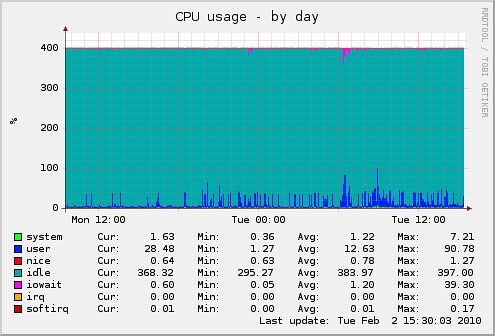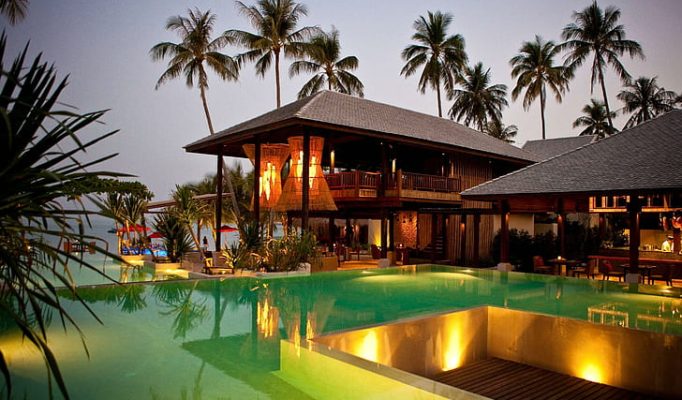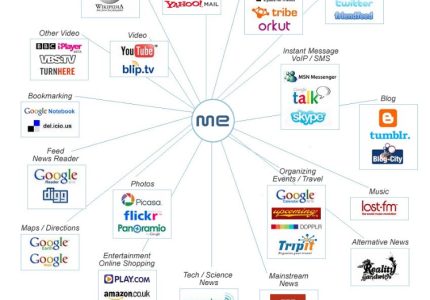Key Features of Effective Hotel Website Design Templates
Effective hotel website design templates are essential for creating a compelling online presence that attracts guests and drives bookings. These templates typically feature user-friendly navigation, visually appealing layouts, and clear call-to-action buttons. Additionally, they incorporate responsive design to ensure seamless performance across devices, along with integrated booking systems and high-quality images to showcase hotel amenities. A well-crafted template balances aesthetics with functionality, ultimately enhancing the guest experience from browsing to reservation.
Responsive and Mobile-Friendly Layouts
Effective hotel website design templates should prioritize a responsive and mobile-friendly layout to ensure an optimal user experience across all devices. This adaptability allows visitors to easily browse hotel information, view galleries, and make bookings whether they are using a desktop, tablet, or smartphone. Clean and intuitive navigation is essential, helping guests quickly find rooms, amenities, and contact details. Incorporating high-quality visuals and engaging content enhances the appeal and credibility of the hotel, while clear calls-to-action guide users towards booking or inquiry options. Additionally, fast loading times, accessibility features, and seamless integration with booking systems contribute to a user-centric and efficient website experience.
Intuitive Navigation Structures
Effective hotel website design templates are crafted to enhance user experience and facilitate seamless navigation, making it easy for guests to find essential information quickly. One key feature is intuitive navigation structures that guide visitors effortlessly through the site, allowing them to access booking options, amenities, and contact details with minimal effort.
Clear menu layouts, logical page hierarchies, and prominently placed call-to-action buttons contribute to a smooth browsing experience. Additionally, features like sticky headers, simplified booking forms, and search filters improve usability. Visual elements such as high-quality images and consistent design themes further aid users in engaging with the content naturally and efficiently. Overall, these elements work together to increase conversions and ensure visitors have a positive impression of the hotel brand.
High-Quality Visuals and Imagery
High-quality visuals and imagery are essential components of effective hotel website design templates, capturing the attention of visitors and conveying the hospitality experience visually. They help showcase the hotel’s interiors, amenities, and surrounding attractions in an appealing manner, creating an inviting atmosphere that encourages bookings. Clear, professional images enhance credibility and trust, while a consistent visual style maintains brand identity throughout the site. Strategically placed visuals, such as hero images and gallery sections, not only provide aesthetic appeal but also guide users toward important actions like reservations and inquiries. Additionally, optimized images ensure fast load times, contributing to a seamless browsing experience for potential guests.
Clear Call-to-Action Buttons
Clear call-to-action buttons are essential components of effective hotel website design templates as they guide visitors towards desired actions such as booking a room, making an inquiry, or signing up for offers. These buttons should be prominently placed, easily identifiable, and use compelling language to attract attention. Well-designed call-to-action buttons enhance user experience by simplifying navigation and encouraging interaction.
Integrated Booking Systems
Effective hotel website design templates are essential for attracting and converting visitors into guests by providing a seamless and visually appealing online experience. These templates should feature a clean, intuitive layout that highlights the hotel’s unique offerings and amenities, making navigation simple and user-friendly.
Integrated booking systems are a critical component of successful hotel website templates. They enable guests to check availability, select dates, and complete reservations directly on the site, enhancing convenience and reducing the need for third-party services. A well-designed booking system should be easy to use, secure, and synchronized with the hotel’s management system to ensure real-time updates.
Other key features include high-quality imagery, responsive design that adapts to various devices, fast loading times, and clear calls-to-action. Incorporating multilingual support and accessibility options can also broaden the hotel’s reach and improve usability for all visitors. Overall, an effective hotel website template combines aesthetic appeal with practical functionality to provide a compelling online presence that drives bookings and enhances guest satisfaction.
Popular Types of Hotel Website Templates
Choosing the right hotel website template is essential for creating an inviting and functional online presence. With a variety of designs available, hotel website templates cater to different styles, functionalities, and user experiences. Understanding the popular types of templates can help hoteliers select the best option to showcase their property, attract guests, and enhance bookings.
Booking-Focused Templates
Hotel website design templates play a crucial role in attracting guests and providing a seamless booking experience. Among these, booking-focused templates are particularly popular as they emphasize ease of reservation and user engagement. These templates are crafted to highlight availability, room details, and online booking features prominently, making it simple for visitors to reserve their stay.
- Responsive Layouts: Ensuring the website adapts to any device for a smooth browsing and booking experience.
- Search and Filter Options: Allowing users to easily find rooms based on dates, preferences, and amenities.
- Gallery Displays: Showcasing high-quality images of rooms, facilities, and surroundings to entice potential guests.
- Online Payment Integration: Offering secure and straightforward payment methods to complete bookings directly on the site.
- Availability Calendars: Displaying real-time room availability to prevent overbooking and improve transparency.
- User Reviews and Testimonials: Building trust with prospective guests through feedback and ratings.
- Call-to-Action Buttons: Strategically placed buttons for booking now, check availability, or inquire for more details.
Luxury Hotel Templates
Luxury hotel templates are designed to create an elegant and sophisticated online presence that attracts discerning travelers seeking high-end accommodations. These templates often incorporate high-quality images, refined fonts, and a clean layout to showcase the exclusivity of the hotel. Features commonly include booking systems, gallery sections, and detailed amenities pages to enhance user experience and encourage reservations.
Boutique Hotel Templates
Hotel website design templates play a crucial role in creating an attractive and functional online presence for hospitality businesses. Among the popular types, boutique hotel templates stand out due to their stylish and unique designs tailored to smaller, luxury-focused establishments. These templates often feature elegant visuals, personalized layouts, and easy booking options to enhance guest experience. Additionally, there are other common hotel website templates such as corporate templates designed for large hotel chains, resort templates emphasizing leisure and activities, and minimalist templates focused on simplicity and ease of navigation. Each type is crafted to meet specific branding and operational needs, helping hotels showcase their services effectively and attract more visitors online.
Resort Templates
When it comes to designing hotel websites, choosing the right template is essential for attracting guests and showcasing the property’s amenities. Resort templates are specifically tailored to luxury or leisure destinations, providing a visually appealing and user-friendly experience. These templates often feature high-quality images, integrated booking systems, and easy navigation to help visitors find information quickly and make reservations effortlessly.
- Luxury Hotel Templates – Focus on elegance with sophisticated layouts, elegant typography, and extensive image galleries to highlight upscale accommodations and services.
- Resort Templates – Designed for vacation destinations, these templates emphasize scenic visuals, amenities, activities, and special offers to entice visitors.
- Boutique Hotel Templates – Intimate and stylish, these templates showcase unique decor, personalized services, and personalized experiences for guests.
- Beach Resort Templates – Highlight beachfront views, water activities, and serene environments with bright colors and spacious design.
- Spa and Wellness Templates – Focus on relaxation and health services, featuring calming colors, spa imagery, and easy booking options for treatments.
Budget Hotel Templates
Hotel website design templates come in various styles to cater to different types of accommodations and budgets. Among the most popular options are budget hotel templates, which offer affordable yet functional designs suitable for small or independent hotels aiming to establish an online presence efficiently.
- Responsive layouts that adapt to all devices, ensuring a seamless user experience.
- Built-in booking systems or reservation features to facilitate guest inquiries.
- Photo galleries and showcases to highlight hotel amenities and room options.
- Simple and clean designs focusing on easy navigation and quick access to essential information.
- Customization options to personalize the template according to branding needs.
Popular types of hotel website templates include luxury hotel templates with elegant and sophisticated designs, boutique hotel templates emphasizing unique aesthetics, and resort templates highlighting extensive amenities and outdoor attractions. Each category prioritizes different features to match the target audience and hotel style, ensuring a tailored online presentation. Budget hotel templates are especially valued for their affordability and ease of use, making them a practical choice for small businesses or new entrants in the hospitality industry.
Design Trends in Hotel Website Templates
Hotel website templates are continually evolving to meet the demands of modern travelers and hoteliers alike. Staying current with the latest design trends ensures that hotel websites not only attract more visitors but also provide a seamless and engaging user experience. From sleek aesthetics to innovative features, contemporary hotel templates are designed to capture the essence of luxury, comfort, and convenience that guests seek.
Minimalist Aesthetic
Minimalist aesthetic has become a prominent trend in hotel website design templates, emphasizing simplicity and clean visual layouts to create a sophisticated online presence. This approach uses ample white space, streamlined navigation, and minimal text to highlight key features and imagery, making it easier for visitors to focus on what matters most—beautiful hotel visuals and essential information. By reducing clutter and using subtle color palettes, hotel websites can evoke a sense of elegance and modernity, appealing to travelers seeking refined and comfortable accommodations. Incorporating minimalist design trends also improves user experience by ensuring fast loading times and intuitive navigation, ultimately encouraging bookings and inquiries.
Video Backgrounds
Recent trends in hotel website templates focus on creating engaging and visually appealing experiences that attract potential guests. Incorporating video backgrounds has become a popular design choice to showcase the hotel’s ambiance, amenities, and surrounding attractions in a dynamic way.
- Video backgrounds immediately capture visitors’ attention and convey the atmosphere of the hotel more effectively than static images.
- High-quality videos, when optimized properly, can improve user engagement and increase booking conversions.
- Designs often feature full-screen videos that loop seamlessly, providing a luxurious and modern feel.
- Integrating smooth transition effects alongside video backgrounds enhances the overall user experience.
- Balancing video elements with simple, clean layouts ensures the site remains user-friendly and easy to navigate.
- Responsive design is crucial, so video backgrounds adapt seamlessly across desktops, tablets, and smartphones.
- Complementary design features include bold typography, subtle animations, and intuitive booking interfaces to maximize functionality and aesthetics.
Personalized User Experiences
Modern hotel website templates are increasingly focusing on personalized user experiences to attract and retain visitors. By integrating customizable layouts and dynamic content, these templates allow hotels to tailor their offerings and showcase personalized travel packages, amenities, and local attractions based on user preferences. Sophisticated features such as predictive search, targeted recommendations, and customized booking processes enhance user engagement and satisfaction. Additionally, personalized visuals, such as tailored banners and personalized greetings, create a welcoming atmosphere that resonates with individual visitors. This trend emphasizes the importance of creating a seamless, memorable online journey that reflects each guest’s unique interests and needs, ultimately driving conversions and fostering brand loyalty.
Minimalist and Elegant Typography
Minimalist and elegant typography has become a cornerstone of modern hotel website templates, enhancing user experience and conveying sophistication. Clean, simple fonts ensure that visitors can easily read essential information such as booking details, amenities, and contact information without distraction. This trend emphasizes clarity and visual hierarchy, guiding users seamlessly through the site. Hotel website designs that incorporate refined typography often leverage subtle font variations, spacing, and sizing to create a sense of luxury and professionalism. As a result, these templates not only improve readability but also reinforce the brand’s elegance, making a memorable impression on potential guests.
Customization and Flexibility
Customization and flexibility are essential features in hotel website design templates, allowing hoteliers to create unique online experiences that reflect their brand identity. These features enable the seamless adjustment of layouts, colors, and content, ensuring the website aligns perfectly with the hotel’s aesthetic and operational needs. By offering extensive customization options, templates empower hoteliers to enhance user experience and stand out in a competitive digital landscape.

Theme Options and Skins
Customization and flexibility are vital features of hotel website design templates, allowing hoteliers to tailor their online presence to reflect their unique brand identity. These templates typically offer a wide range of options to modify layouts, colors, fonts, and content sections, ensuring the website aligns perfectly with the hotel’s aesthetic and functional requirements. Theme options and skins further enhance this adaptability by providing pre-designed styles and visual themes that can be easily applied or modified, enabling quick updates and a cohesive look throughout the site. Such features empower hotel owners to create a professional, attractive, and user-friendly website that resonates with their target audience and stands out in a competitive market.
Drag-and-Drop Page Builders
Customization and flexibility are essential features of hotel website design templates, allowing hotel owners to create a unique online presence that reflects their brand. With these templates, users can easily modify layouts, colors, fonts, and content to suit their specific needs without requiring extensive coding knowledge. This adaptability ensures that each hotel website can stand out and effectively communicate its distinct offerings to potential guests.
Drag-and-drop page builders further enhance this flexibility by providing an intuitive interface for designing web pages. They enable users to effortlessly move elements such as images, text blocks, and buttons to desired locations, simplifying the customization process. This user-friendly approach allows hotel managers to quickly update and personalize their websites, ensuring they remain current and engaging for visitors, ultimately improving user experience and increasing bookings.
Integration with Third-Party Services
Customization and flexibility are essential features of hotel website design templates, allowing hoteliers to tailor their online presence to better reflect their brand identity and unique offerings. These templates often provide a wide range of layout options, color schemes, and content modules that can be easily modified without extensive technical knowledge. This ensures that each hotel can create a distinctive website that appeals to their target audience.
Integration with third-party services is another crucial aspect of effective hotel website templates. Seamless incorporation of booking engines, payment gateways, review platforms, and customer relationship management tools enhances the user experience and streamlines operations. By supporting various third-party integrations, these templates enable hotels to offer functionalities such as real-time availability updates, secure reservations, and personalized marketing campaigns, ultimately driving higher bookings and guest satisfaction.
SEO and Performance Optimization
Effective SEO and performance optimization are essential components of creating a successful hotel website. By enhancing search engine visibility and ensuring fast, smooth user experiences, these strategies help attract more visitors and convert them into loyal guests. When combined with well-designed website templates, they provide a powerful foundation for building an appealing and efficient online presence for hotels.
Fast Load Times
When designing hotel website templates, fast load times are essential to enhance user experience and improve search engine rankings. Optimizing images by compressing files without losing quality helps reduce load times, making the site more efficient. Implementing clean, minimal code and leveraging browser caching also contribute to faster performance. Additionally, using content delivery networks ensures that website content loads quickly regardless of the visitor’s location. SEO best practices, such as proper structuring of HTML tags and fast loading speeds, work together to attract more visitors and convert them into bookings, ultimately increasing revenue for the hotel.
SEO-Friendly Code Structure
Effective hotel website design templates prioritize both SEO and performance optimization to enhance visibility and user experience. Structuring the code in a clean, logical manner ensures that search engines easily crawl and index vital content, improving search rankings. Incorporating semantic HTML tags helps define the page’s structure clearly, making it easier for search engines to understand the hierarchy of information such as room details, amenities, and booking options. Optimizing images by compressing files and using appropriate formats reduces load times, contributing to a faster website experience. Additionally, implementing lightweight CSS and JavaScript files, leveraging asynchronous loading, and minimizing code redundancies keep the site fast and responsive. A well-organized, SEO-friendly code structure combined with performance best practices results in a hotel website that attracts more visitors and provides seamless navigation, ultimately driving higher conversions and bookings.
Schema Markup for Hotels
In designing hotel website templates, incorporating effective SEO and performance optimization strategies is essential to attract visitors and ensure a seamless user experience. Proper HTML structure and fast-loading pages improve search engine rankings, making it easier for potential guests to find the hotel online. Using schema markup tailored for hotels enhances search result visibility by providing detailed information such as hotel name, location, amenities, reviews, and rating, which can display as rich snippets in search results. Implementing schema markup not only boosts click-through rates but also helps search engines understand the content better, resulting in improved indexing. Combining these SEO techniques with performance optimization ensures the website loads quickly on all devices, reducing bounce rates and increasing conversions, ultimately leading to more bookings and a stronger online presence for the hotel.”
Top Platforms for Hotel Website Templates
Choosing the right website template is essential for creating an inviting and user-friendly online presence for hotels. Top platforms for hotel website templates offer a wide range of professionally designed options that help hoteliers showcase their facilities, services, and amenities effectively. These platforms provide customizable themes, responsive layouts, and features tailored to the hospitality industry, making it easier to attract and engage potential guests online.
WordPress Themes
When it comes to creating a stunning and functional hotel website, choosing the right platform and theme is essential. Top platforms for hotel website templates and WordPress themes offer a variety of options tailored to meet the needs of hoteliers, from modern designs to booking integrations. WordPress remains the most popular choice due to its flexibility, extensive plugin support, and ease of customization. Popular themes like HotelBook, Bellevue, and Soho Hotel provide professional layouts, reservation systems, and user-friendly interfaces that enhance guest experience. Additionally, platforms like Wix and Shopify also offer hotel-specific templates with drag-and-drop features, making website creation accessible even for beginners. Overall, selecting a top-quality template enhances your hotel’s online presence, attracts more visitors, and simplifies booking processes.
HTML/CSS Templates
Choosing the right hotel website template is essential for creating an appealing and functional online presence. Top platforms offering high-quality HTML/CSS templates provide a range of options tailored specifically for the hospitality industry. These platforms ensure that hotel websites are visually attractive, easy to navigate, and include features like booking forms, galleries, and amenities sections.
One of the leading platforms is ThemeForest, which hosts a vast selection of hotel website templates designed by professional developers. These templates are customizable and responsive, ensuring your website looks great on all devices. Another popular platform is TemplateMonster, offering a variety of hotel and resort templates with modern designs and integrated booking systems.
BootstrapMade specializes in responsive HTML templates suitable for hotels, with easy-to-edit layouts and comprehensive documentation. W3Layouts is also a good option, providing free and premium templates that include essential hotel features and customizable components. Additionally, Colorlib offers free hotel website templates that are stylish and mobile-friendly, perfect for small to medium-sized hotels looking for affordable solutions.
By choosing templates from these top platforms, hotel owners can quickly establish a professional and user-friendly website that attracts guests and streamlines the booking process. These platforms continually update their collections to include the latest design trends and functionalities, ensuring your hotel website remains competitive and engaging.
Website Builders (Wix, Squarespace)
When selecting the best platform for hotel website templates and builders, it’s essential to consider user-friendly interfaces, customization options, and design quality. Wix and Squarespace are two popular website builders that offer a variety of hotel-specific templates, making it easy for hoteliers to create professional, attractive websites without extensive coding experience.
Wix stands out with its vast collection of customizable hotel templates, drag-and-drop editing features, and integrated booking systems. It provides flexibility for hotel owners to tailor their site design to match their brand identity and to include functions such as online reservations, galleries, and customer reviews. Wix’s user-friendly platform makes it accessible even for beginners, while offering advanced tools for more experienced users.
Squarespace is renowned for its sleek, modern templates that emphasize visual appeal, which is ideal for showcasing high-quality images of hotel properties. Its intuitive interface combines beautiful designs with built-in features like reservation management, contact forms, and social media integration. Squarespace also offers excellent mobile responsiveness, ensuring that hotel websites look great on all devices. Its all-in-one platform simplifies the process of building and maintaining an online presence for hotels.
Both Wix and Squarespace are excellent options for hotel website design, with Wix providing more extensive customization and booking integrations, and Squarespace emphasizing stunning aesthetics and simplicity. Choosing between them depends on specific needs, technical skills, and the desired look and functionality of the hotel website.
Choosing the Right Hotel Website Template
Selecting the ideal hotel website template is a crucial step in establishing an attractive and functional online presence. A well-designed template not only showcases the hotel’s amenities and services but also provides visitors with an easy and seamless browsing experience. Understanding the key features and customization options available can help hoteliers choose a template that aligns with their brand identity and enhances their digital marketing efforts.
Matching with Brand Identity
Choosing the right hotel website template is essential for creating a compelling online presence that accurately reflects your brand identity. A well-designed template not only enhances user experience but also communicates your hotel’s unique qualities effectively. Matching your website design with your brand ensures consistency, builds trust, and attracts more guests.
When selecting a hotel website template, consider the following factors:
- Visual Style and Aesthetic – Ensure the template’s design aligns with your hotel’s branding, whether it’s modern, classic, luxurious, or boutique.
- Customization Options – Look for templates that offer flexibility to tailor colors, fonts, and layouts to match your brand identity.
- Mobile Responsiveness – Choose a template that performs well on all devices, providing a seamless experience for users booking on smartphones or tablets.
- Booking Integration – Make sure the template supports easy and secure booking systems that reflect your hotel’s services.
- Gallery Features – Select templates with compelling gallery layouts to showcase your property, amenities, and surroundings vividly.
- Speed and Performance – Opt for lightweight templates that load quickly to improve user engagement and SEO rankings.
- Support and Updates – Ensure the template provider offers reliable support and regular updates for compatibility and security.
Matching your website template with your brand identity involves selecting a design that communicates your hotel’s personality and values clearly. Use consistent color schemes, imagery, and typography that resonate with your target audience. Ultimately, a thoughtfully chosen hotel website template will elevate your online presence and encourage more bookings by reflecting your brand authentically.
Budget Considerations
When selecting a hotel website template, it’s essential to consider both design quality and budget constraints to ensure an effective online presence. A well-chosen template can enhance user experience, showcase your property effectively, and drive bookings while fitting within your financial plan.
Budget considerations play a significant role in determining the right template for your hotel. Here are some factors to keep in mind:
- Template Price: Determine how much you are willing to invest. There are free options available, but premium templates often provide better features and support.
- Features and Functionality: Prioritize templates that include booking systems, galleries, and responsive design, which may influence the cost.
- Customization Ease: Ensure the template aligns with your branding needs. More customizable templates may require additional investment in development or design expertise.
- Support and Updates: Consider whether the template includes ongoing support and updates, which can add to the long-term value.
- Compatibility with Budget Management: Choose a template that reduces the need for extensive modifications, thus conserving costs.
Technical Skills Required
Choosing the right hotel website template is essential for creating an appealing and functional online presence that attracts guests and showcases your property effectively. The ideal template should align with your brand identity, provide easy navigation, and offer features tailored to the hospitality industry such as booking integrations, gallery sections, and customer reviews. Consider templates that are mobile-responsive, customizable, and compatible with popular content management systems to ensure seamless updates and maintenance.
Technical skills required for customizing hotel website templates vary depending on the complexity of the design and the platform used. Basic knowledge of HTML, CSS, and JavaScript is often necessary to modify layouts, styles, or functionalities. Familiarity with content management systems like WordPress or Joomla can facilitate easier customization through plugins and themes. For advanced customization, skills in PHP, database management, and server configuration may be needed. However, many modern templates come with user-friendly interfaces and documentation, reducing the need for extensive technical expertise for initial setup and basic edits.
Customer Support and Updates
When selecting a hotel website template, it’s essential to prioritize ease of customization and a design that aligns with your hotel’s branding. A versatile template should offer a variety of layouts and features suitable for showcasing rooms, amenities, and customer reviews. Ensuring the template is responsive guarantees a seamless experience for visitors across desktops, tablets, and smartphones, enhancing user engagement. Additionally, consider templates that come with integrated booking systems or easy integration options to streamline reservations.
Customer support and regular updates are vital to maintaining a reliable hotel website. Choose a template provider that offers comprehensive support, including documentation, tutorials, and responsive assistance channels to address any technical issues promptly. Regular updates ensure compatibility with the latest browsers and security standards, protecting your site from vulnerabilities. A provider committed to ongoing improvements also ensures that your website remains modern, functional, and competitive in the hospitality industry.





